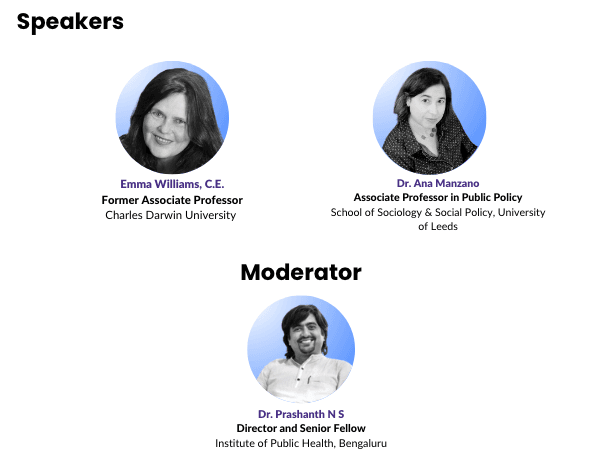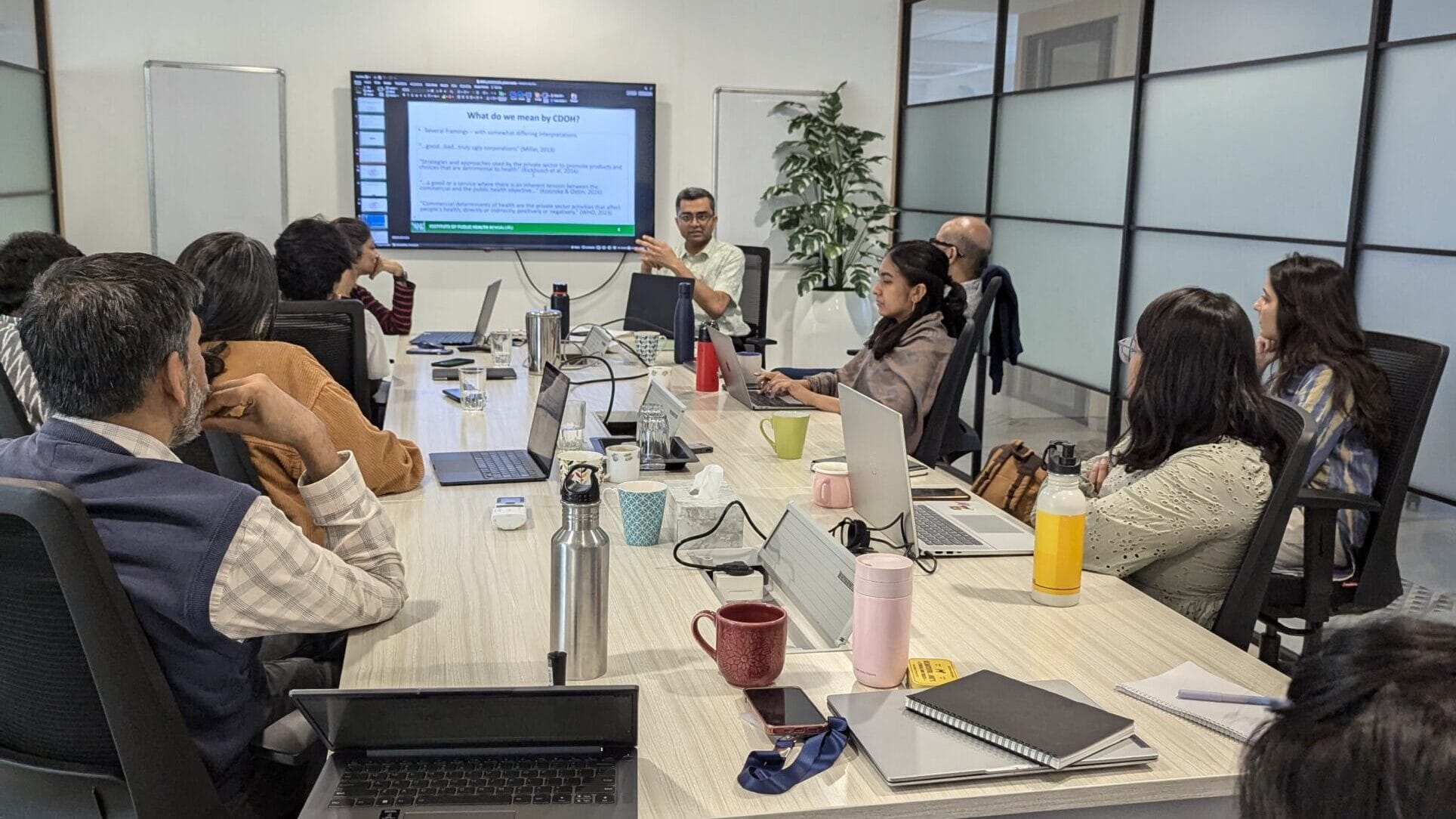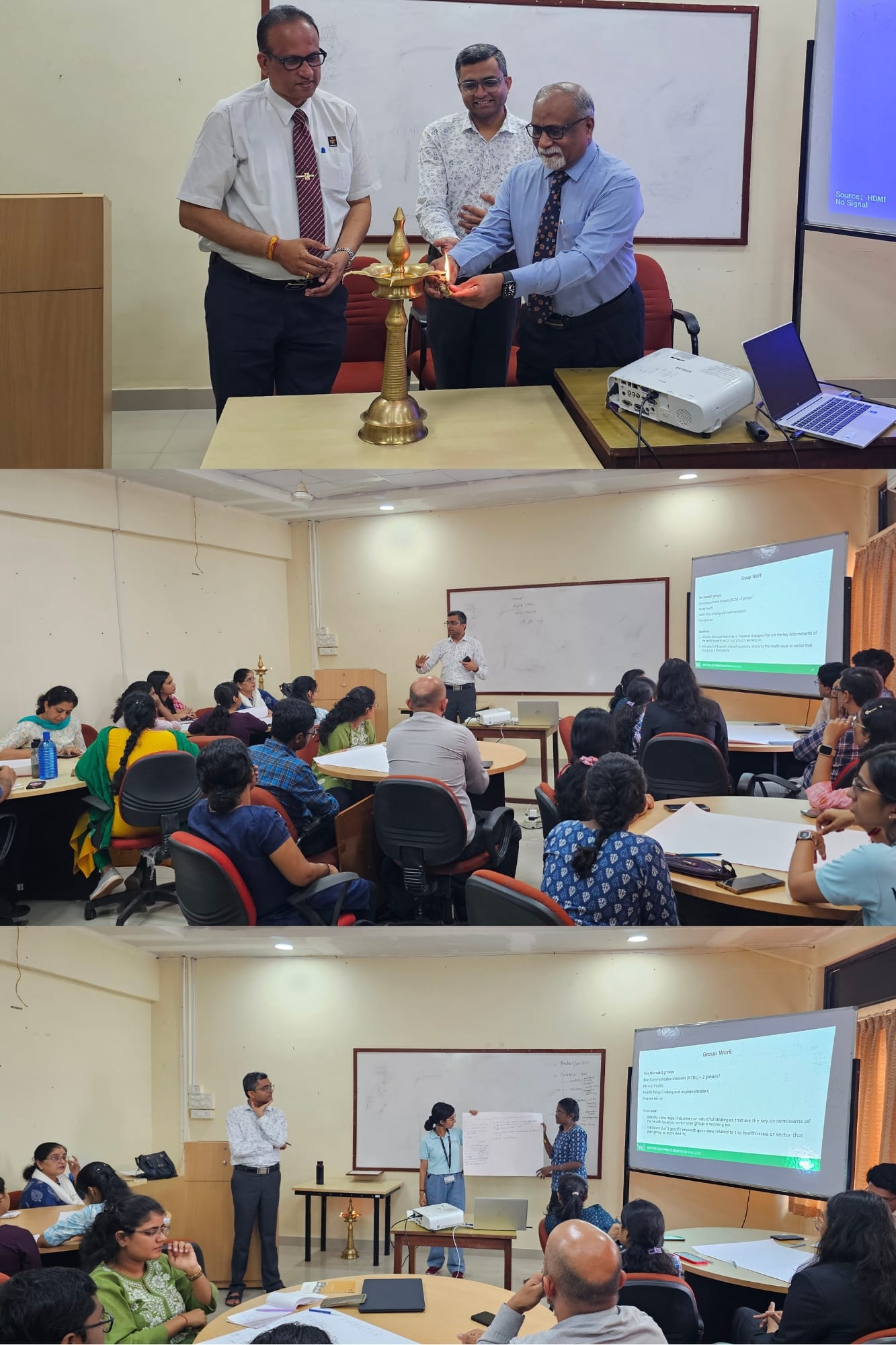
Inside Implementation: REALISE Webinar Series, Episode-3
Date
11th April 2025
Time
3 PM to 4 PM, IST
Where
Online on Zoom
In the third episode of the ‘Inside Implementation: REALISE Webinar Series’, we hosted a reflective conversation with Prof. Ana Manzano and Dr. Emma Williams, co-editors of the new book Realist Evaluation: Principles and Practice. The session was moderated by Dr. Prashanth N S, who contributed a chapter on Realist Interviewing.
This episode explores the motivation behind creating a practice-oriented book on Realist Evaluation and how it fills key methodological and practical gaps in the field. The speakers discuss the book’s unique contribution to building evaluation capacity for researchers, practitioners, and evaluators working with complex social programs.
Drawing on her public service experience in the Northern Territory of Australia, Dr. Emma Williams shares insights from applying Realist methods in real-world settings. The discussion also highlights the growing global interest in Realist Evaluation, especially in low- and middle-income countries (LMICs), and reflects on the culture of evaluation, its challenges, failures, and evolving practices.
The episode offers grounded perspectives on the use of Realist Evaluation in implementation research, including how these methods are being adapted across contexts to evaluate policy and programs.
In Episode 2 of the series, we hosted a panel on Implementation Research Methods with experts Dr. Malabika Sarker, Dr. Brynne Gilmore, and Dr. Sonu Goel, moderated by Dr. Upendra Bhojani. The speakers shared their diverse journeys and the methodological challenges they faced. They emphasized the need to build capacity in these methods to enhance research uptake and move away from Eurocentric models toward contextually rooted approaches. Watch Episode 2 here: https://www.youtube.com/watch?v=eNyV-6UnAVA













